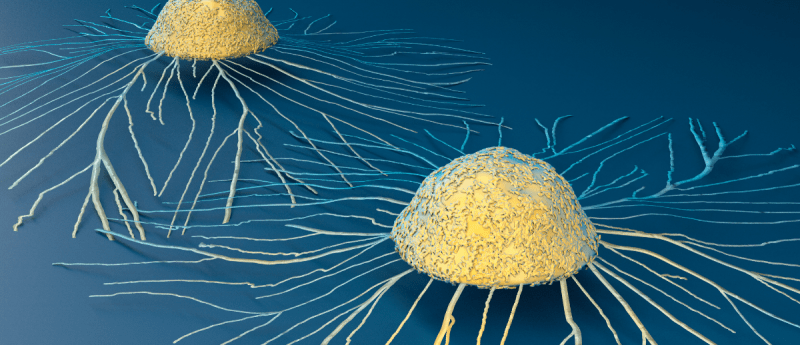Sustainability in cell and gene therapy: an interview with Roddy O’Connor

Can pharmaceutical products be both sustainable and convenient? Roddy O’Connor (Research Assistant Professor; Perelman School of Medicine, University of Pennsylvania) argues that they must. In this interview with Dr O’Connor, we explore his research into CAR-T metabolism for solid tumors and the importance of sustainability in the lab. His research relies on the ability to customize media formulations to gain insight into individual component impacts on cellular metabolism. Roddy discusses his experience with Nucleus Biologics’ Krakatoa system and its contribution towards a cleaner planet for future generations.
This infographic is part of the RegMedNet In Focus on sustainability in cell and gene therapy. Discover expert opinions on this topic by visiting our feature homepage.
Please introduce yourself and your institution/company?
My name is Roddy O’Connor and I am a Research Assistant Professor at the Perelman School of Medicine, University of Pennsylvania. I have a Ph.D. in Molecular Pharmacology from Emory University School of Medicine and later did my postdoctoral research in Cancer Biology and T cell immunotherapy at the University of Pennsylvania.
What is the primary focus of your research?
Our research involves the development of genetic approaches to enhance CAR-T metabolic function in solid tumors as well as understanding how metabolic reprogramming and co-stimulation regulates CAR-T cell differentiation. We have developed a series of approaches including metabolic flux analysis and isotopic tracer technology to understand how metabolic adjustments in CAR-T cells that have been genetically engineered to express distinct co-stimulatory domains influence central memory differentiation, increase oxidative metabolism, and promote long-lasting persistence. We also investigate the reprogramming of CAR-T cells to metabolize lactate in solid tumors and have been developing an optimized medium formulation to enhance CAR-T cell potency.
What attributes do you search for in your lab products?
Quality, accuracy and bioactivity, in short. These aspects significantly impact the integrity of data generated in my laboratory. The quality of supplied reagents or products impacts its bioreactivity and efficacy. Importantly, accuracy of production directly impacts the outcome of our studies – higher quality, consistent products ultimately yield better outcomes and result in reproducible data. Studying CAR-T metabolism, knowing exactly what is in our media and having the utmost confidence in the quality of the supplied materials is integral to our success.
What features of the Krakatoa™ media manufacturing system promote CAR-T development?
Our research relies on the ability to customize media formulations in order to ascertain individual component impacts on cellular metabolism. The Krakatoa system facilitates, quite easily, the incorporation of custom formulations into your laboratory in volumes that won’t break the bank with very short lead times. Our experience is that custom media can be expensive with long lead times for delivery – not to mention often in quantities that are impractical for smaller scale iteration and development. With Krakatoa, we can easily customize a formulation, such as glucose-free or glutamine-free media, and get just a few pods to test. We can store them at room temperature, preparing it ‘on demand’, so that we can make the correct quantities and reduce media wastage.
How did media manufactured at point of use compare to commercial off-the-shelf media?
In studies performed in our lab, media solubilized in Krakatoa performed the same as comparable off-the-shelf media options. We analyzed a few custom variations of RPMI and the media exhibited the same quality and performance in our hands. Plus, the media generated at point of use has the superior benefit of being cleaner for the environment because the media pods used to solubilize the media are largely biodegradable and dispensed in reusable glass bottles. Solubilized media was generated on demand and stored prior to solubilization at room temperature.
If adopted on a large scale, how can Krakatoa alter the cell and gene therapy industry and patient care?
Let’s start by thinking about quality and speed. Nucleus’ offerings facilitate quicker iteration and testing of formulations that can significantly improve therapeutic outcomes as we have shown previously. Their model promotes individual ownership that can provide consistency of supply and downstream scalability with GMP quality. Not only can they help expedite therapies, but they are also helping to promote a clean planet for future generations by eliminating a large percentage of the plastics wasted during this phase of the development process – that’s an important and often neglected feature that is truly representative of how we should be moving in the medical arena.
Why is sustainability important to you and how do the products you use in the lab reflect this?
Both for the patients who will be recipients of the therapies that we work on as well as for my own family, it is imperative to start addressing the significant impacts that the pharmaceutical and life sciences industries contribute towards greenhouse gas emissions. I would like to not only create better therapies for both but do so in a manner that promotes positive and responsible environmental stewardship. One issue we find is that too often, there isn’t an option, particularly concerning lab supplies, that supports this goal. Krakatoa is a pioneer in this regard, and Nucleus Biologics (CA,USA) and Stoic Bio (CA, USA) are in a way leading a charge towards sustainability that I would love to see become a standard in the industry.
What do you think causes the greatest environmental impact in the pharmaceutical industry, and how is your lab making efforts to be more sustainable?
Certainly, there are a number of things that come to mind including, of course, plastic waste. However, one of the greatest impacts comes from travel. At this year’s annual Physiological Society meeting, they announced that a transatlantic flight from New York to London produces 819,500,175L of CO2. That will have a negative impact on the environment for 33 years [1].
Nucleus shared the results of their lifecycle assessment and you can see what a large percentage of the total greenhouse gas emissions are contributed by the transportation of media worldwide. We are striving to incorporate practices in our lab to reduce our environmental impacts such as the use of teleconferencing and virtual meetings and, of course, by incorporating instrumentation such as Krakatoa into our day-to-day activities.
Somewhat similar to previous question, why do you think sustainability is important to our industry?
I think it’s critical and goes beyond cell therapy to basic science. As more and more focus is placed on incorporating sustainable practices in all aspects of our lives – electric vehicles, recycling, biodegradable components and sustainable agricultural practices – I believe the same lens will be cast upon the sciences. If technologies exist to mitigate the excessive negative environmental impacts, then why aren’t we incorporating them? As cell therapy and the basic sciences innovate, there must be a broader acceptance of incorporating green laboratory practices so that those advances do not come at an environmental cost that the public is unwilling to accept. It is my opinion that future generations will use environmental sustainability as a litmus test of sorts that will ultimately define the success of a therapeutic product.
Can pharmaceutical products be both sustainable and convenient?
In fact, I would argue they must. Firstly, the interest should come from both manufacturer and consumer. Consumers are driving the sustainability movement with the power of their pocketbooks. However, I do not believe they would be doing this if the products they are purchasing don’t pass the quality test. They would not purchase them simply for altruistic reasons – these products are subjected to the same level of scrutiny. Therefore, we must not sacrifice quality to achieve sustainability. However, if customers know that there is a sustainable option with equivalent quality, they will gravitate towards that – the same will happen in pharmaceutical development. Manufacturers will respond in turn if sustainable practices can meet the high expectations of clients and do so in a cost-effective manner.
How do you see the environmental impacts of the cell and gene therapy industry to evolve in the next 5-10 years?
Cell and gene therapy development likely will begin to focus on more automation in the hopes of generating processes that are more easily reproducible, scalable and broadly applicable. I also believe that environmentally friendly technologies will be incorporated earlier and more frequently to address the demand for this from the public.
 Dr. O’Connor’s research emphasizes novel conditioning strategies and genetic approaches to confer unique metabolic attributes to CAR-T cells. In collaborative research with Nucleus Biologics, Dr. O’Connor developed a customized, cGMP grade, CAR-T cell culture medium for the University of Pennsylvania (UPenn) clinical sector. In a recent paper, he shared how this state-of-the-art medium formulation enhances CAR-T cell potency and anti-tumor function. As medium composition can obscure metabolic responses induced by CAR co-stimulation, he recently designed a physiologic medium specifically for the Seahorse assay (Agilent thought leader award). His team were also the first to show how non-native enzymes increase the resilience of CAR-T cells against metabolic (lactate, hypoxia) and immune (siglec) checkpoints in solid tumor environments. His expertise in T-cell metabolism has been recognized through an award for excellence in immunology and exemplified by several industry sponsored research alliances with Seahorse Bioscience, Nucleus Biologics, and Agilent. At UPenn, his team is now poised to translate our advances in CAR-T cell metabolic fitness to target various malignancies and auto-immune diseases. Dr. O’Connor is a highly regarded expert in CAR-T cell metabolism and has presented his findings at American Association of Immunology, American Society of Gene & Cell Therapy and the CAR-TCR Summit. Dr. O’Connor co-organizes the annual metabolomics symposium at UPenn and has presented several workshops as well as a webinar series with Nucleus Biologics on CAR-T cell metabolism.
Dr. O’Connor’s research emphasizes novel conditioning strategies and genetic approaches to confer unique metabolic attributes to CAR-T cells. In collaborative research with Nucleus Biologics, Dr. O’Connor developed a customized, cGMP grade, CAR-T cell culture medium for the University of Pennsylvania (UPenn) clinical sector. In a recent paper, he shared how this state-of-the-art medium formulation enhances CAR-T cell potency and anti-tumor function. As medium composition can obscure metabolic responses induced by CAR co-stimulation, he recently designed a physiologic medium specifically for the Seahorse assay (Agilent thought leader award). His team were also the first to show how non-native enzymes increase the resilience of CAR-T cells against metabolic (lactate, hypoxia) and immune (siglec) checkpoints in solid tumor environments. His expertise in T-cell metabolism has been recognized through an award for excellence in immunology and exemplified by several industry sponsored research alliances with Seahorse Bioscience, Nucleus Biologics, and Agilent. At UPenn, his team is now poised to translate our advances in CAR-T cell metabolic fitness to target various malignancies and auto-immune diseases. Dr. O’Connor is a highly regarded expert in CAR-T cell metabolism and has presented his findings at American Association of Immunology, American Society of Gene & Cell Therapy and the CAR-TCR Summit. Dr. O’Connor co-organizes the annual metabolomics symposium at UPenn and has presented several workshops as well as a webinar series with Nucleus Biologics on CAR-T cell metabolism.
Disclaimer
The opinions expressed in this interview are those of the interviewee and do not necessarily reflect the views of RegMedNet or Future Science Group.
In association with
Reference:
- Tipton M, Montgomery H. Travelling back to normal. Experimental Physiology, 107(5), 422-423, (2022).
